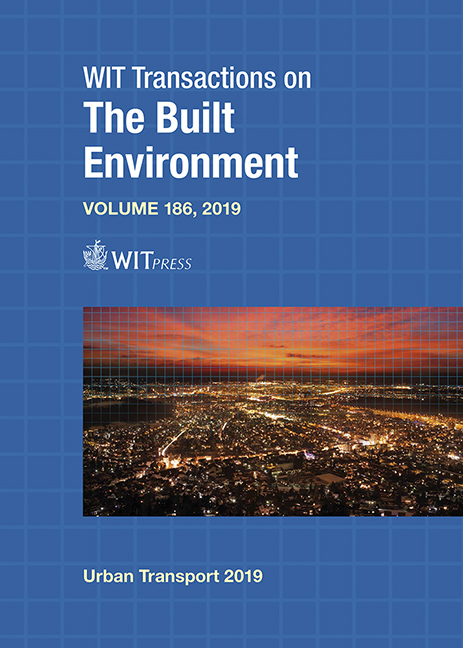SIMULATION-DRIVEN OPTIMIZATION OF URBAN BUS TRANSPORT
Price
Free (open access)
Transaction
Volume
186
Pages
12
Page Range
97 - 108
Published
2019
Size
465 kb
Paper DOI
10.2495/UT190091
Copyright
WIT Press
Author(s)
RITESH KUMAR KALLE, PRASHANT KUMAR, SAIMA MOHAN, MASAYUKI SAKATA
Abstract
Urban bus transport is an important mode of public transportation in developing countries and accounts for the major share of daily commuter demand in growing cities. However, many of these systems are not optimized and suffer from delays, cancellations and over-crowding, leading to losses. In recent times, intelligent transport systems (ITS) have been deployed to improve the bus operations. However, the ITS deployed in developing nations have been limited to monitoring daily operations, largely due to their dynamic and unpredictive demand pattern. Bus transport operators need new ITS solutions for schedule optimization and fleet management to improve the efficiency and profitability. Simulation driven optimization of operational parameters is one of the methods to propose the advantages of integrating ITS solutions with the bus operations. The primary data utilized for analysis includes both the static and dynamic sources. The static data consists of route, schedule, vehicle and historical ticket information. Whereas the dynamic data includes GPS traces and Automatic Vehicle Location System (AVLS) information. The simulation consists of models of bus operations as well as the passenger ridership. Each of these are inter-dependent and directly impact the measurable performance indicators for the transport operators (for example, passenger load factor, departure headways, vehicle utilization and earnings). Therefore, the goal of the proposed simulator is to optimize these measurable key performance indicators (KPI) through their iterative schedule evaluation. In this paper, the methods used to model bus transportation are investigated and the impact on measurable performance indicators are evaluated. The simulator can not only be used to optimize the schedule, but also to evaluate passenger load and bus fleet utilization scenarios. In addition to evaluation of schedule for typical urban scenario, the conditions in developing countries and application difficulties are discussed. In summary, the results indicate that demand driven scheduling results in cost savings and efficiency improvement.
Keywords
discrete event simulation, bus transport, schedule optimization





